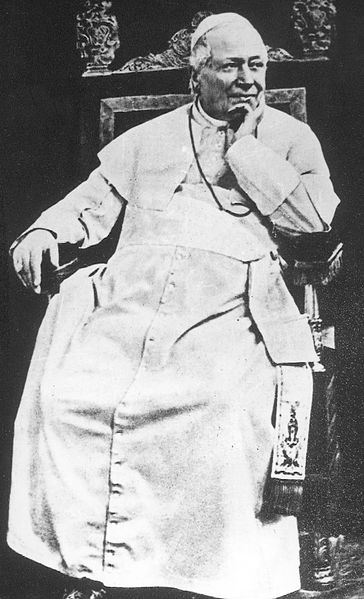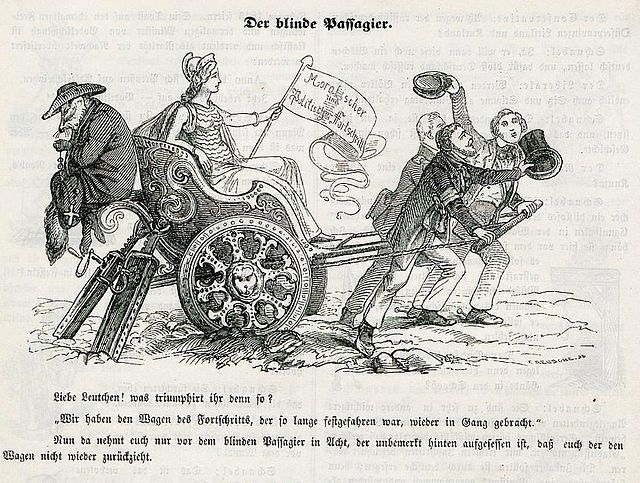In the history of Germany, the Kulturkampf was the seven-year political conflict (1871–1878) between the Catholic Church in Germany, led by Pope Pius IX, and the Kingdom of Prussia, led by chancellor Otto von Bismarck. The Prussian church-and-state political conflict was about the Church's direct control over both education and ecclesiastical appointments in the Prussian kingdom as a Roman Catholic nation and country. Moreover, when compared to other church-and-state conflicts about political culture, the German Kulturkampf of Prussia also featured anti-Polish bigotry fueled by "racist anxieties" in Germany "about the Polish portions of the Prussian East."
Pope Pius IX (c. 1878)
Anti-Catholic caricature in the Munich Leuchtkugeln, 1848. A warning not to rejoice yet. The Catholic cleric as a fox and blind passenger on the wagon of progress, in order to later reverse the course of history.
Bismarck c. 1875
Prussian Minister of Education, Adalbert Falk, 1872
Catholic Church in Germany
The Catholic Church in Germany or Roman Catholic Church in Germany is part of the worldwide Roman Catholic Church in communion with the Pope, assisted by the Roman Curia, and with the German bishops. The current "Speaker" of the episcopal conference is Georg Bätzing, Bishop of the Roman Catholic Diocese of Limburg. It is divided into 27 dioceses, 7 of them with the rank of metropolitan sees.
Cologne Cathedral, Cologne
Ecclesiastical provinces and episcopal sees in Central Europe 1500
Munich Frauenkirche. Cathedral of the Archbishop of Munich and Freising.
Catholic procession in Moosburg, Bavaria, 2005








